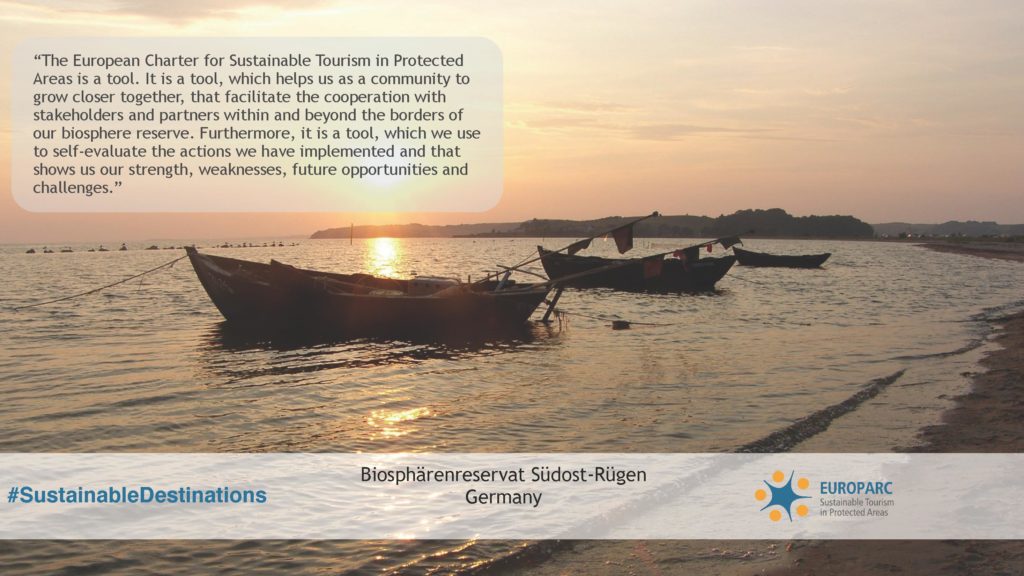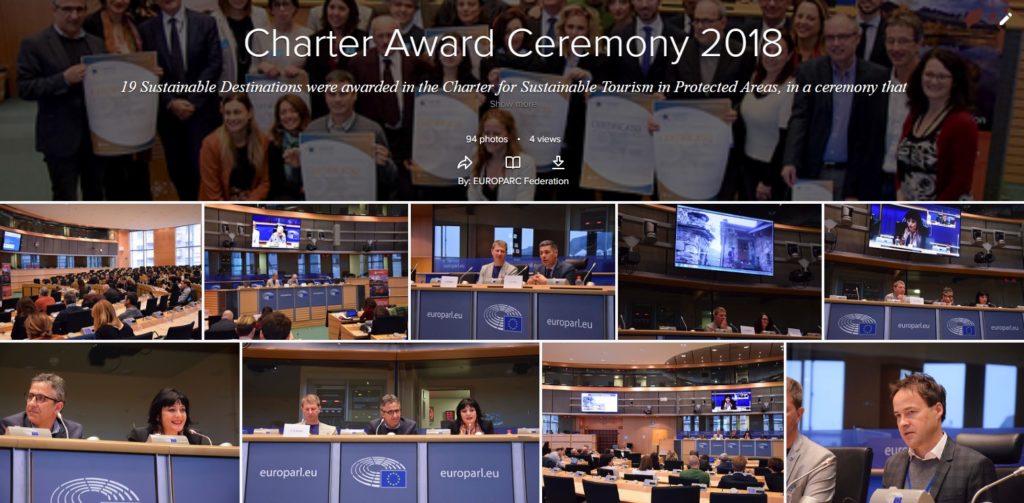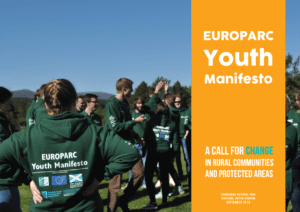Charter Award Ceremony 2018: 19 Sustainable Destinations awarded in Brussels!
Charter Award Ceremony 2018, European Parliament, Brussels
Every year, we celebrate success with the Sustainable Destinations that have started their path or renewed their commitment towards Sustainability. On the 29th November, 19 Sustainable Destinations were awarded the European Charter for Sustainable Tourism in Protected Areas, in a high-level Ceremony organised in the European Parliament, kindly hosted by the Member of the European Parliament Mr Paolo de Castro from the Group of the progressive alliance of Socialists & Democrats.
EUROPARC was delighted to welcome a range of high-level speakers to this year’s Ceremony: the MEP Julie Ward from the CULT Committee, MEP Giovanni La Via from Committee on the Environment, Public Health and Food Safety, Christof Kienel, Head of Unit Tourism, Secretariat of the Commission for Natural Resources (NAT), European Committee of the Region and Nicola Notaro, Head of Unit Nature Protection, DG Environment.

The Charter Award Ceremony 2018
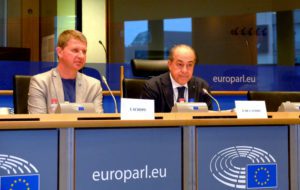
Ignace Schops and MEP Paolo de Castro at the Charter Award Ceremony 2018
The implementation of the Charter is an opportunity to work side-by-side with local business partners and ensure that tourism can bring social and economic benefits to the local community.
There is a clear link between tourism development and Sustainable Agriculture, as the MEP Paolo de Castro, who is also Vice-chair of the Agriculture Committee, highlighted in his motivating welcome speech. Moreover, Gianfranco Ciola from the Dune Costiere Regional Nature Park spoke about the important project that they are carrying out in the area based on agriculture as a tool for enhancing the rural territory with a view to sustainable development linked to knowledge and tourism.
With the 2018 European Year of Cultural Heritage as a background of all events in Brussels, we invited the MEP Julie Ward from the CULT Committee and heard the example of the Spanish National Park of Garajonay and the “Silbo Gomero”, a whistle language used for the daily tasks, as a warning and to deceive the authorities of the mountain and the island. Despite a cultural tradition, the Silbo was endangered and fell in disuse, but its recognition as Immaterial World Heritage, made it recover and today it is taught in schools, studied and researched.

from left to right: Gianfranco Ciola and Simonetta dello Monaco from Dune Costiere, and Francisco Correa, Master silbadore from La Gomera.
Working together
The Charter Award Ceremony has been an excellent occasion to not only celebrate 19 outstanding examples for Sustainable Tourism in Protected Areas from countries as diverse as Italy, Spain, France, United Kingdom and Germany, but also allowed to share experiences and discover how every Park shares the same passion for their Nature and People, for the natural and cultural treasures.
This shared understanding could be felt in the short thank you speeches given by the Park representatives when accepting the Charter Award Certificate. Even if not all of them were given in English, combined translation efforts allowed to make every contribution understood. A beautiful example of the major aspect the Charter Network is all about.
The Charter works, because we work together,
highlighted EUROPARC Director Carol Ritchie.
The key principles of the Charter for Sustainable Tourism in Protected Areas comprise the protection of the natural and cultural heritage, participation by all stakeholders, effective partnership working, planning to prepare and implement a sustainable tourism strategy, to realize the environmental, social and economic benefits of everyone working more sustainably.
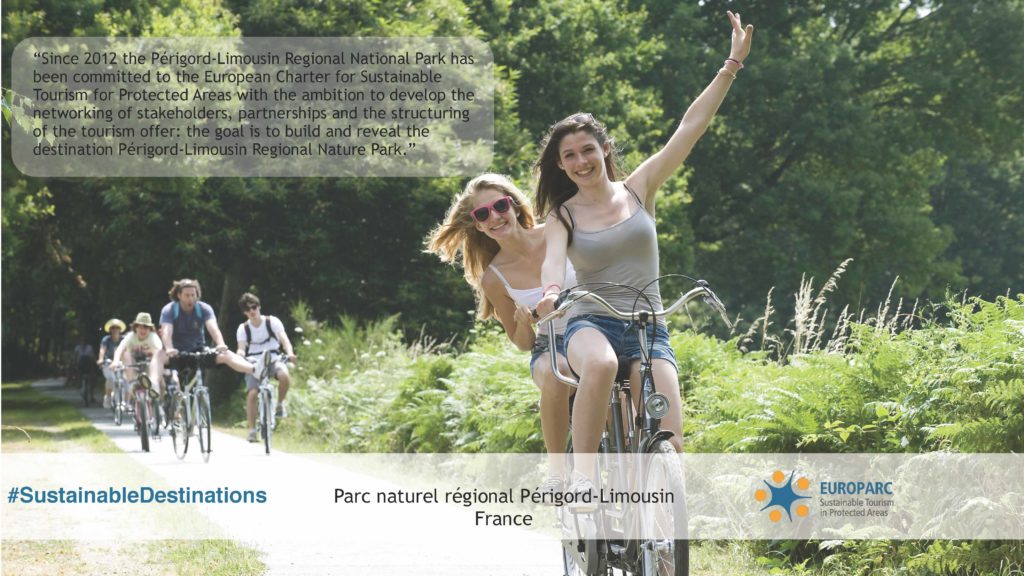
Good for Nature, Good for People
The local engagement that Protected Areas are challenged to achieve with the implementation of the methodology is one of the stepping stones of the Charter, as it was highlighted by the French Garajonay National Park authority (Guadalupe Island) who described it as “a powerful instrument to better influence on the tourism development into and around Park:
the charter plays an important role to deal with transversal problems that only can be solved by working together – private businesses promoting sustainability, the feeling of belonging to a common tourism destiny, and the need to work together in viable projects that promote the territory and its conservation.
This year EUROPARC re-awarded 15 and welcomed 4 new Sustainable Destinations to the Network.
We are now counting 168 Charter Parks in 20 countries. They are spread all over Europe but unite around the shared vision to make sustainable tourism a meaningful quality experience which safeguards natural and cultural values, supports local livelihoods and quality of life and which is after all economically viable.
New Sustainable Destinations Awarded
- Alpi Apuane Regional Park, Italy
- Porto Cesareo Marine Protected Area, Italy
- Tablas de Daimiel National Park, Spain
- Monumentos Naturales y Comarca del Maestrazgo , Spain
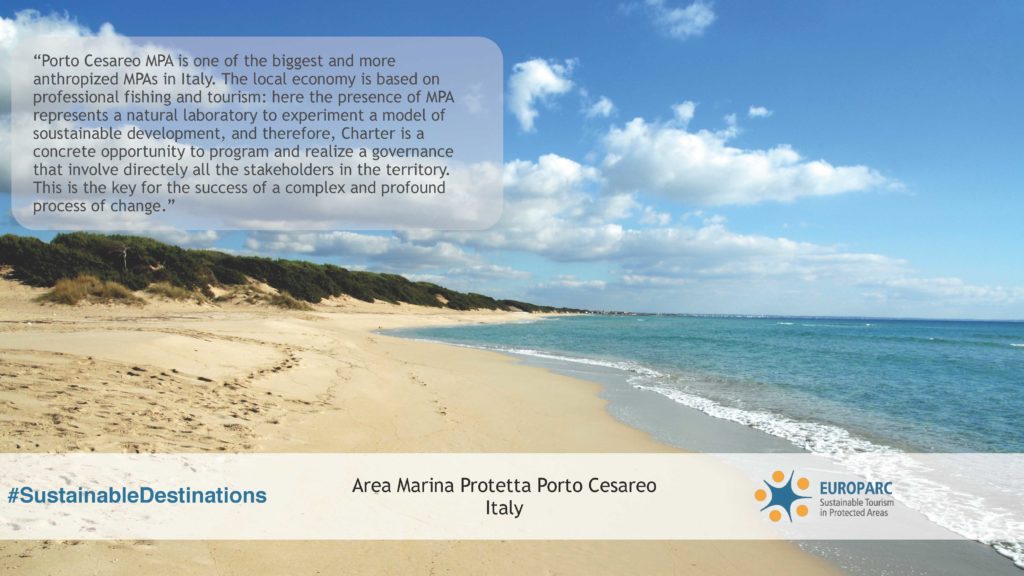
Sustainable Destinations re-awarded
France
- Guadeloupe National Park, awarded in 2007 and 2018
- Périgord-Limousin Regional Nature Park, awarded in 2013 and 2018
- Scarpe – Escaut Regional Nature Park, awarded in 2003, 2010 and 2018
Germany
- Southeastern Rügen Biosphere Reserve, awarded in 2012 and 2018
Italy
- Aree protette dell’Ossola: Alpe Veglia e Alpe Devero Nature Park , awarded in 2013 and 2018
- Val Grande National Park, awarded in 2013 and 2018
- Sila National Park, awarded in 2011 and 2018
- D’Abruzzo Lazio e Molise National Park, awarded in 2011 and 2018
- Colli Euganei Regional Park, awarded in 2012 and 2018
- Coastal Dunes from Torre Canne to Torre S. Leonardo Regional Park, awarded in 2012 and 2018
- Adamello Brenta Nature Park, awarded in 2006, 2012 and 2018
Spain
- Monfragüe National Park, awarded in 2011 and 2018
- Nature Park Alto Tajo, awarded in 2009 and 2018
- Garajonay National Park, awarded in 2008, 2014 and 2018
United Kingdom
- Shropshire Hills Area of Outstanding Natural Beaty, awarded in 2010 and 2018
Congratulations to all the Sustainable Destinations awarded. You are on the right path to make the difference within your community. Proving that Sustainable Tourism is Good for Nature and Good for People.
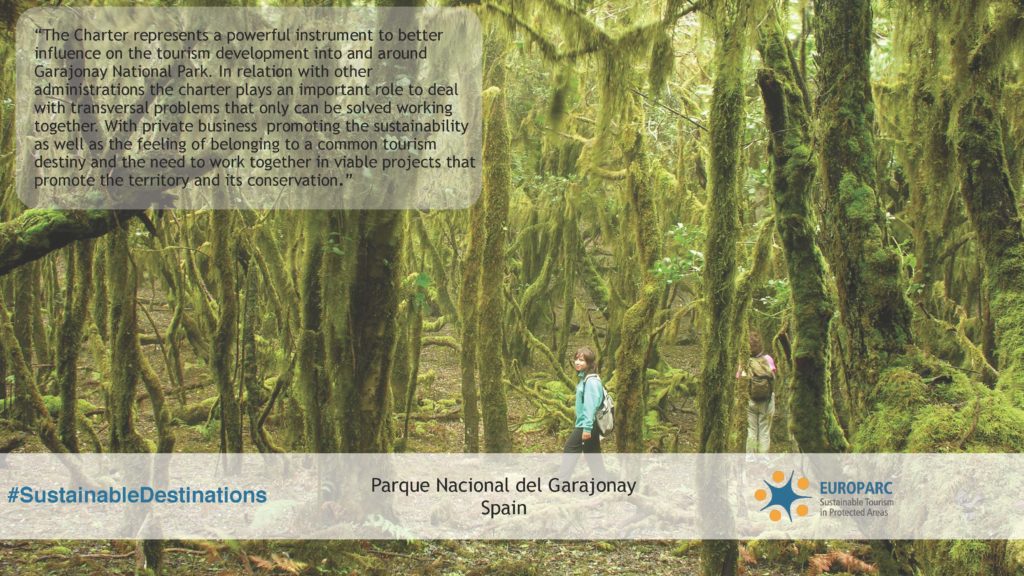
International Premiere of the film ‘A SUSTAINABLE JOURNEY’
The International Premiere of the film took place during the Charter Award Ceremony. Produced by EUROPARC Federation in the framework of CEETO project, this film portrays the story of a traveler seeking to escape the pressures of everyday life to a different kind of tourism that he believes will be good for nature and good for him too. The objective of the film is to raise awareness among travelers and local communities on the importance of sustainable tourism.
More info at: https://www.interreg-central.eu/Content.Node/A-Sustainable-Journey-The-Film.html
The Film is available in 5 different languages: English, French, Italian, Spanish and German.
We would like to congratulate and thank all the awarded Charter Parks once more for having celebrated with us here in Brussels and for having made the Charter Award Ceremony 2018 a real success!
We hope the event left all participants feeling energized and inspired to engage even more with or within the Charter Network.
We hope the event left all participants feeling energized and inspired to engage even more with or within the Charter Network. To keep your memories alive we share with you the photos taken throughout and the live video of the conference.
Kick-off: #HabitatHeroes – EUROPARC Junior Rangers for Protected Areas and Natura 2000
EUROPARC Junior Rangers discover and learn about the many valuable species and habitats of Protected Areas all over Europe – and beyond.
With their engagement they help to preserve our natural treasures and inspire their peers to grow more curious and caring about nature as well. EUROPARC Junior Rangers are true Habitat Heroes and as such we want to celebrate them once more!
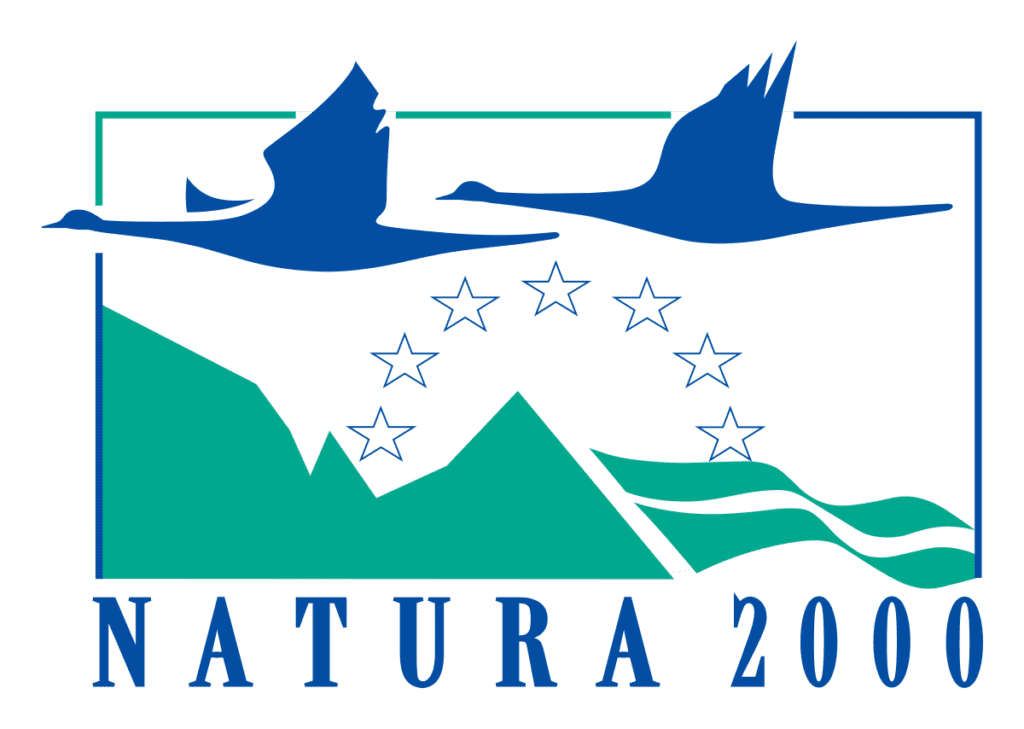

International Junior Ranger Camp 2018 – Müritz National Park
To make the current activities of Junior Ranger network visible, EUROPARC Federation has launched a campaign together with Junior Ranger groups across Europe:
Meet our Habitat Heroes – EUROPARC Junior Rangers for Protected Areas and Natura 2000
How to learn more and keep track of the #HabitatHeroes campaign activities?
Over the rest of 2018 and throughout 2019 we will “map the field” and raise awareness for the great work Junior Ranger groups are currently doing for threatened flora, fauna and habitats in Protected Areas and Natura 2000 sites in particular.
- Visit the “Habitat Heroes” campaign website: For now, we are thrilled to introduce you to our Habitat Hero campaign pioneers – groups already taking action in 2018. You will find a growing map and overview of all Junior Ranger groups joining the campaign over 2019.
- Besides, you will meet our “Habitat Heroes” over the upcoming months in dedicated articles – make sure you follow our news!
- Keep an eye on social media – the #HabitatHeroes will provide you with exciting updates from our Junior Ranger groups that take part in the campaign. Don’t forget to share their actions!
- European Day of Parks – 24th May 2019 – will be all about “Our Natural Treasures” and our Junior Rangers are all invited to run a “Habitat Heroes” conservation activity dedicated to the natural treasure of their Protected Areas.
Want to join the campaign? We are happy to learn about your conservation action – just drop us a mail: f.minozzi_at_europarc.org
Time to meet our first #HabitatHeroes pioneers: The Kullaberg Junior Rangers introduce themselves!
by Tor Larsson, Kullaberg Junior Rangers Mentor
Kullaberg Nature Reserve is located in the south west of Sweden, on a peninsula with a ridge pointing out to the sea. The area has been inhabited since the stone-age and was in fact the first part of what today is Sweden to show when the continental glacier withdrew after the last glacial period. At the peak is a lighthouse overlooking the strait of Öresund and you can see the Danish coastline.

Junior Rangers in Kullaberg Nature Reserve ©Tor Larsson (Mentor)
- Tell us all about your “natural treasure”: Which is the species or habitat you learn and work with the most in your Protected Area? What is special about it?
In the marine reserve of Kullaberg, you can see seals and harbour porpoise and the steep cliffs the peregrine falcon mate.Even though it is quite small, the Kullaberg Nature Reserve is the most visited nature reserve in Sweden with more than half a million visitors each year. With that kind of exposure and several commercial companies engaging in activities such as scuba diving, rock climbing and mountain biking, there is a lot of work needed to maintain Kullaberg a sustainable tourism destination.
- Describe us what you and your fellow Junior Rangers are doing/will do to learn more and protect your natural treasure. Do you even teach others?
The area that is of most interest to the Kullaberg Junior Ranger Group is the marine nature reserve and in particular the pollution and amount of plastic waste in the sea. One Kullaberg Junior Ranger says:
Kullaberg is fairly well-protected on land but the marine nature reserve is more vulnerable. All kind of plastic waste floats in and we can make difference by helping to clear the coastline from it!
The group also helps with other things; like monitoring invasive species and supporting the population of the red-listed eel by releasing glass eel in the marine nature reserve. Besides the Kullaberg Junior Ranger Group has been working to provide a new secure fire-place and wood for burning in an area where there previously had been several illegal fireplaces made.
- What do you find tricky being a Junior Ranger – and what is the best thing about it?
The Kullaberg Junior Ranger group is enthusiastic about the Junior Ranger programme in general, especially about the opportunity to meet new friends in the international junior ranger community. They think it is essential, however, to get more people to know about the programme.
We ought to tell more young people about it. Maybe we could have presentations in the schools.
________________________________________________________________
The Kullaberg Junior Ranger programme is administered by the local scout group, Jonstorp Kustscoutkår.
Learn more about the Kullaberg Habitat Heroes on their (Swedish) webpage and on their Facebook-Page.
Also, make sure you watch their new video; taking you on a tour of their summer 2018 – full of Junior Ranger action…including EUROPARC International Junior Ranger Camp in Müritz National Park!
Webinar: Marine Natura 2000 Sites
Management challenges in Marine Natura 2000 Sites
- Wednesday, 5th December 2018, 10:00 CET (Central Europe Time)
- Register here
Over the years the EU has established an increasingly robust policy framework (Habitats & Birds directives and Marine Strategy Framework Directive) to address the multiple challenges facing its marine environment and to ensure a more sustainable ecosystems-based approach to the use of its marine resources.
The Habitats Directive lists nine marine habitat types and 16 species for which marine site designation is required, whilst the Birds Directive lists a further 60 bird species whose conservation requires marine site protection.
As its terrestrial counterpart, the marine environment is also divided in different biogeographical regions: Marine Atlantic, Marine Baltic, Marine Black Sea, Marine Macaronesian and Marine Mediterranean.
At the end of 2017, more than 3000 marine Natura 2000 sites have been designated, which cover more than 7% of the total EU marine area (over 400,000 km2).
In this webinar, we will get to know two of these designated sites, one from the Marine Atlantic region – the Isles of Scilly, presented by Tom Hoppe, from Isles of Scilly Inshore Fisheries and Conservation Authority (IFCA) and one from the Marine Mediterraneanregion – the Portofino MPA introduced by Valentina Cappanera,.
The webinar will be presented by Fotios Papoulia, policy officer from the EC DGENV, who will introduce the main priorities and challenges of Natura 2000 in the Marine Environment.
Case Study 1
Proactive management of fisheries within a Special Area of Conservation – the Isles of Scilly.
Future challenges to managing a site and making good decisions in the context of relatively poor knowledge.
By Tom Hoppe, Chief Fisheries and Conservation Officer for the Isles of Scilly Inshore Fisheries and Conservation Authority (IFCA)
The Isles of Scilly are an archipelago 40km from the mainland of Cornwall on the South West tip of England. The islands were designated as an SPA in 2001 and as an SPA in 2005. A Marine Conservation Zone comprising 11 ‘subsites’ was designated in 2013. The site has been designated for species such as reefs, seagrass beds, grey seals. The Inshore Fisheries and Conservation Authority (IFCA) has responsibility for the management of fisheries within an area out to six nautical miles, in total 406 square kilometres of sea. Commercial fishing only takes place at a very low level of pressure, with 23 local boats primarily operating pots and nets.
Tom Hoppe will talk about the relationships between the different agencies involved and how they have operated within a new requirement to proactively manage fisheries within the SAC. He will mention the different pressures on this system and how they are managed; highlighting where this management is cultural, voluntary or through a regulation. He will also talk about future challenges to managing a site and making good decisions in the context of relatively poor knowledge.
Case Study 2
Italian MPAs and the management of Natura 2000 – the example of Portofino MPA
By Valentina Cappanera, Staff member of the Managing entity of the Portofino MPA
The management of marine Natura 2000 sites is not homogeneous at Italian level. However, in global terms, the current situation of marine Natura 2000 sites in Italy is not good and an alignment with other countries is needed. Portofino is the third smallest MPA in Italy; nevertheless, it has a really rich flora and fauna heritage but suffers a strong human frequentation.
As any other Italian MPA, Portofino has to carry on its conservation goals fitting the regulation with the necessity of protection of Natura 2000 sites. In her presentation, Valentina will tell us about their goals and efforts to regulate acess within the MPA.
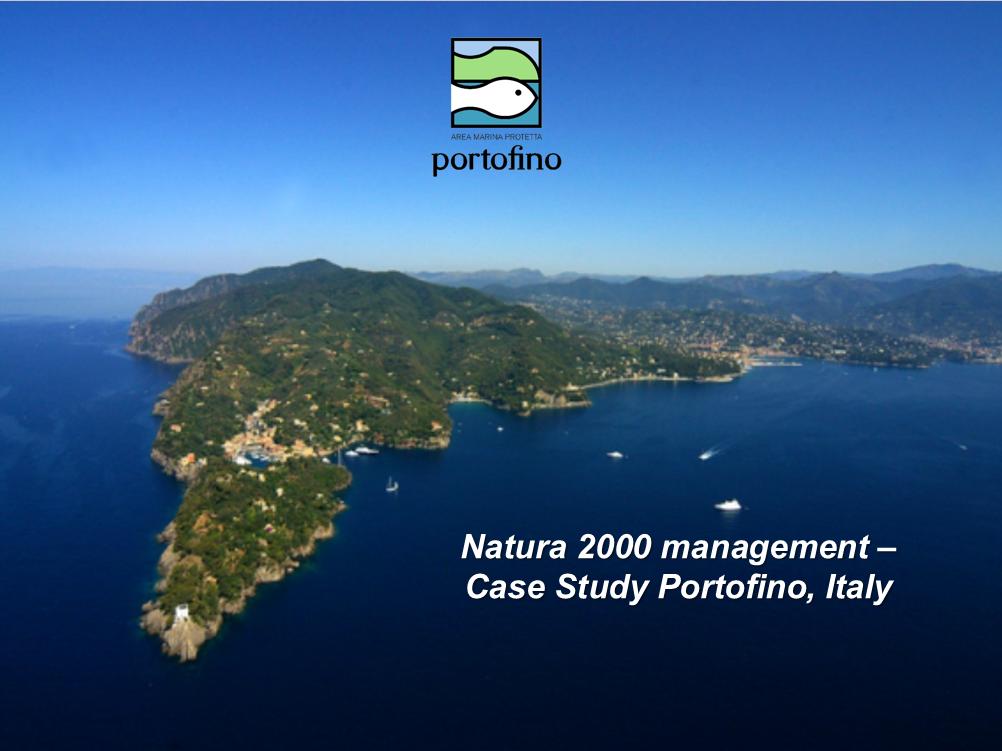
The webinar will be held in English and have a duration of approximately 1:15 min. Participation is free but registration is necessary – you can register here.
Siggen Seminar 2019: Registrations are now closed!
EUROPARC Youth Manifesto - Workshop II in Kalajoki, Finland June 2018 (©Rita Kovács)
Siggen Seminar 2019
- Youth involvement in Protected Areas
- 18th – 21st March, Gut Siggen, Germany
This year, continuing on from the launch of the YOUTH MANIFESTO, we will focus, in this 2 day seminar, on working with youth. We will explore the new programme created by EUROPARC the Youth + programme and how this can be a model for working with 18-25year old in your park.
We will also hear from other youth programmes to gain new perspectives and ideas that will help you build a programme in your area. You will be welcome to bring your own ideas for a collective “surgery” where we can examine problems and challenges you may have and suggest solutions together.
The seminar is FREE to EUROPARC members (includes meals and accommodation), you need only cover your travel costs to Siggen.
By early 2019 the full programme will be launched.
Registrations are now closed!
How to get to the Siggen Seminar Center?
The Siggen Seminar Center belongs to the Alfred Toepfer Foundation and lies on the north-eastern coast of Germany in the county of Holstein. It is a 20 minute taxi ride from the nearest train station, Oldenburg (Holst), and a five-minute bike-ride to the nearest beach.
Please contact EUROPARC with any questions you might have and download the pdf Directions to Siggen to learn how you can easily reach it by plane, train or car.
